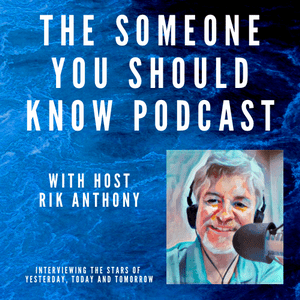An Etiquette for Alzheimer’s
Photo by Christian Bowen on Unsplash
Try a quick thought Exercise with me: Imagine that you have just been diagnosed with a form of dementia (an umbrella term that includes Alzheimer’s, vascular dementia, and others). How would you like your friends to treat you?
I ask the question because there is ample material out there for caregivers, and even some material for the afflicted, but only a scintilla of information and advice for friends of the afflicted. And given that most, if not all, of us know friends and family members who have (or had) this scourge, this is a deficit that needs addressing.
Back to the exercise: I know how I would like to be treated – as if nothing has changed and I’m still the same person I always was – but on honest reflection, I recognize that this is not how I have reacted to others in practice. Once I learn of a person’s dementia diagnosis, my own impulse is to stay away. I don’t want to embarrass myself by saying something wrong or asking an insensitive question. And I certainly don’t want to see a cheerful, intelligent companion reduced to one struggling to formulate a complete sentence.
In other words, I am afraid (and ashamed of it).
Some people, so I am told, cope with fear by whistling a happy tune. I cope by doing more research. What that research tells me is that my fears are not only groundless, but selfish. Friends with dementia, particularly in its early stages, need their social connections to continue showing up for them to help them maintain lives as normal as possible, for as long as possible.
It’s important to recognize that Alzheimer’s and other forms of dementia are progressive. There is no on-off switch that converts a mind instantly from fully sentient to barely functional. In most cases, this progression takes 7 to 10 years (although it can be longer).
In the early stage, the symptoms are mild and perhaps not obvious to anyone but family and closest friends. The person loses some memory and finds complex tasks more challenging, but retains many of their abilities and requires little assistance.
The symptoms are more pronounced in the middle or moderate stage: the person may confuse words, get easily frustrated or angry, or act in unexpected ways. In the late stage, the person loses the ability to respond to the environment, to carry on a conversation, or to control their movement. There might also be significant changes in personality.
It is in the early stages that keeping up Relationships and contact will be most helpful for the dementia patient, and most comfortable for friends. Physicians advise people with dementia to continue doing the activities they enjoy and to remain as independent as possible. Being with friends is a key component in most people’s lives. A dementia diagnosis can lead to greater isolation and loneliness – especially if friends are reluctant to stay in touch.
What Patients Say
Ask people who have dementia. NIDirect, the official government website for Northern Ireland citizens, published interviews with people living with dementia about what they needed from friends and family. Some of their thoughts:
”Treat us the same as you always have, allow us a moment or two, look at us when you speak, don’t feel sorry for us. All in all, just continue as usual, as we are still the same people.”
“Sometimes I can’t get the words out. So I tell people I have dementia and ask for help. More often than not, people are understanding and willing to help. I might have dementia but I’m still a human being.”
“I decided to tell people about my dementia because I want to help stop the stigma associated with dementia. I hope people will give me the same respect and understanding as they would to anyone else. I want people to be more aware of dementia and accept people like me.”
“I would encourage people to live as normal a life as you can, get out and about as much as possible.”
“There is life after a diagnosis. Just take it one day at a time.”
Rules of Etiquette
Besides just showing up, friends should keep in mind a few fine points of etiquette when visiting persons with dementia.
Be patient when your friend has trouble finding a word or finishing a thought. Allow them time.
Don’t fall into “baby talk,” but do speak slowly. That makes conversations easier to follow.
Don’t talk about your friend as if he/she is not in the room.
Reduce distractions such as loud noises or hyperactive children.
Making simple choices can be exceedingly difficult, so offer no more than two alternatives.
Ask questions that can be answered yes or no.
In a similar vein, Steven Petrow, the author three books on modern manners, this week suggested four basic rules of “cancer etiquette.” (A Cancer survivor himself, he has also written beautifully about losing his younger sister to cancer.) His third rule applies equally well to Alzheimer’s etiquette:
Don’t let denial or fear get in the way of reaching out to someone who is seriously ill. Do not ignore someone you care about because you’re not sure what to say.
How would you like to be treated? Don’t be afraid to do the same for friends and family in their time of need.


























